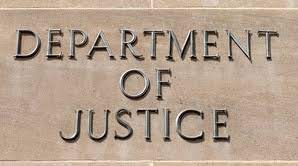DOJ and OFAC Settle with Indonesian Company for $2.5 Million for Violations of the North Korea Sanctions Program

PT Bukit Muria Jaya (BMJ), a global supplier of cigarette paper based in Indonesia, agreed to pay $1,561,570 for conspiracy to commit bank fraud as part of a scheme to deceive various banks in order to collect payments for cigarette paper exports to North Korea.
BMJ entered into an eighteen month deferred prosecution agreement with the Justice Department in exchange for the payment of the criminal fine. Also, BMJ agreed to implement a compliance program to prevent and detect violations of U.S. sanctions laws and to regularly report to the Justice Department on the implementation of that program.
BMJ admitted that it sold products to two North Korean companies as well as a Chinese trading company, knowing that the products were destined to North Korea.
Specifically, BMJ exported cigarette paper to a China-based intermediary, who procured the cigarette paper on behalf of OFAC-designated Korea Daesong General Trading Corporation (“Daesong”) while Daesong was operating under an alias. In addition, BMJ sold cigarette paper to Dalian Sun Moon Star International Logistics CO LTD, which was subsequently designated by OFAC in August of 2018.
BMJ, at the request of its customers, replaced the ultimate customer from paperwork (invoices, packing lists, and bills of lading) to reference only the names of intermediaries located in third countries. The transactions totaled nearly $1 million.

BMJ directed payments for its North Korea-related exports to its U.S. dollar bank account at a non-U.S. bank. This caused 28 wire transfers related to such exports to clear through U.S. banks between March 2016 and May 2018. Under the North Korea sanctions program, correspondent banks in the United States are prohibited from processing wire transfers for customers in North Korea.
After BMJ learned that one of its North Korean customers was having difficulty executing the payments to BMJ, BMJ arranged the payments by using Chinese front companies and other third-party payors to disguise the source of the funds from North Korea. The U.S. banks failed to conduct any due diligence on any of the transactions involving the correspondent bank accounts. BMJ accepted these third-party payments, knowing that they were intended to evade sanctions monitoring and compliance systems.
Eventually, BMJ ceased all business with North Korea and adopted a formal written sanctions policy and compliance procedures. BMJ did not voluntarily disclose the conduct to OFAC.

BMJ’s remediation efforts included appointment of a chief compliance officer who reports directly to the company’s president, procurement of sanctions screening services from a third-party provider; adoption of a written export control and sanctions policy, implementation of a KYC process, and the requirement that all counter-parties execute OFAC compliance assurances and certifications.














